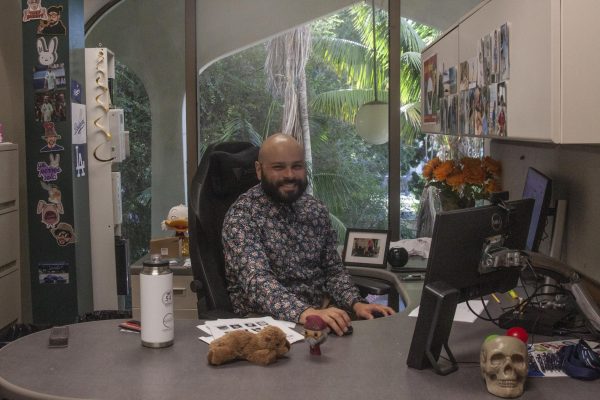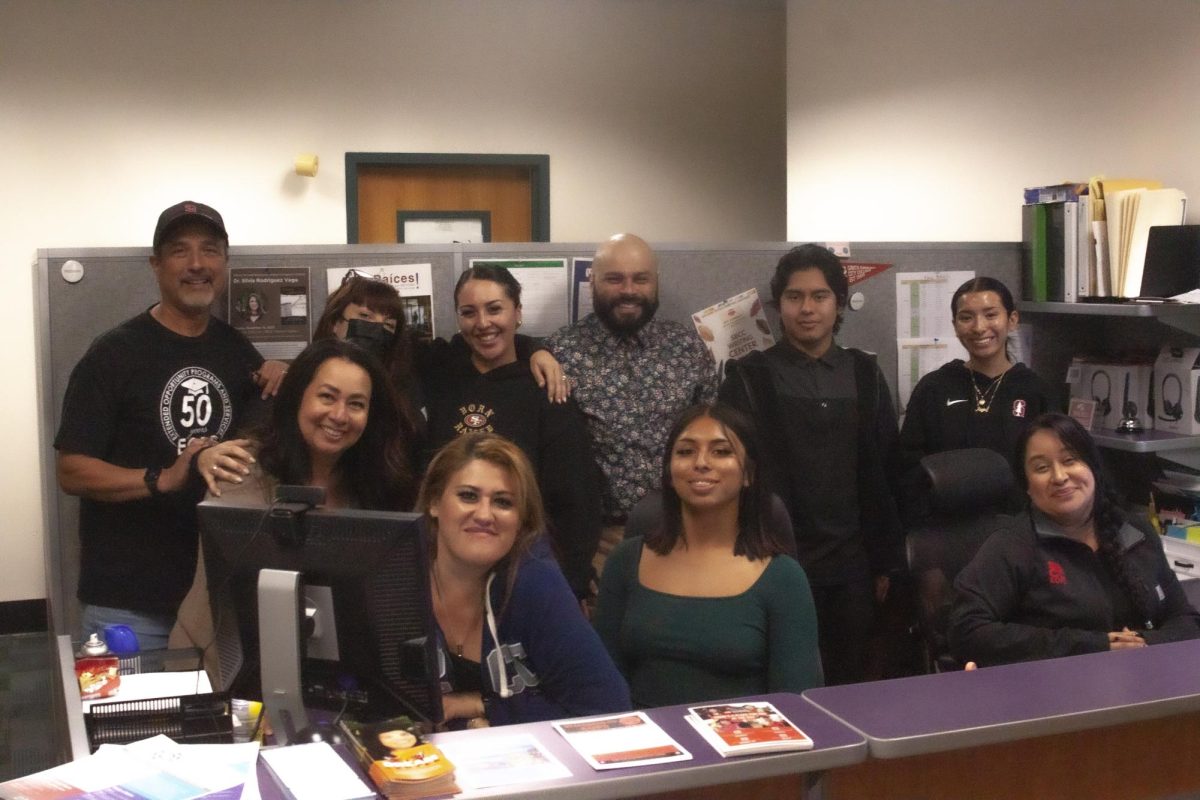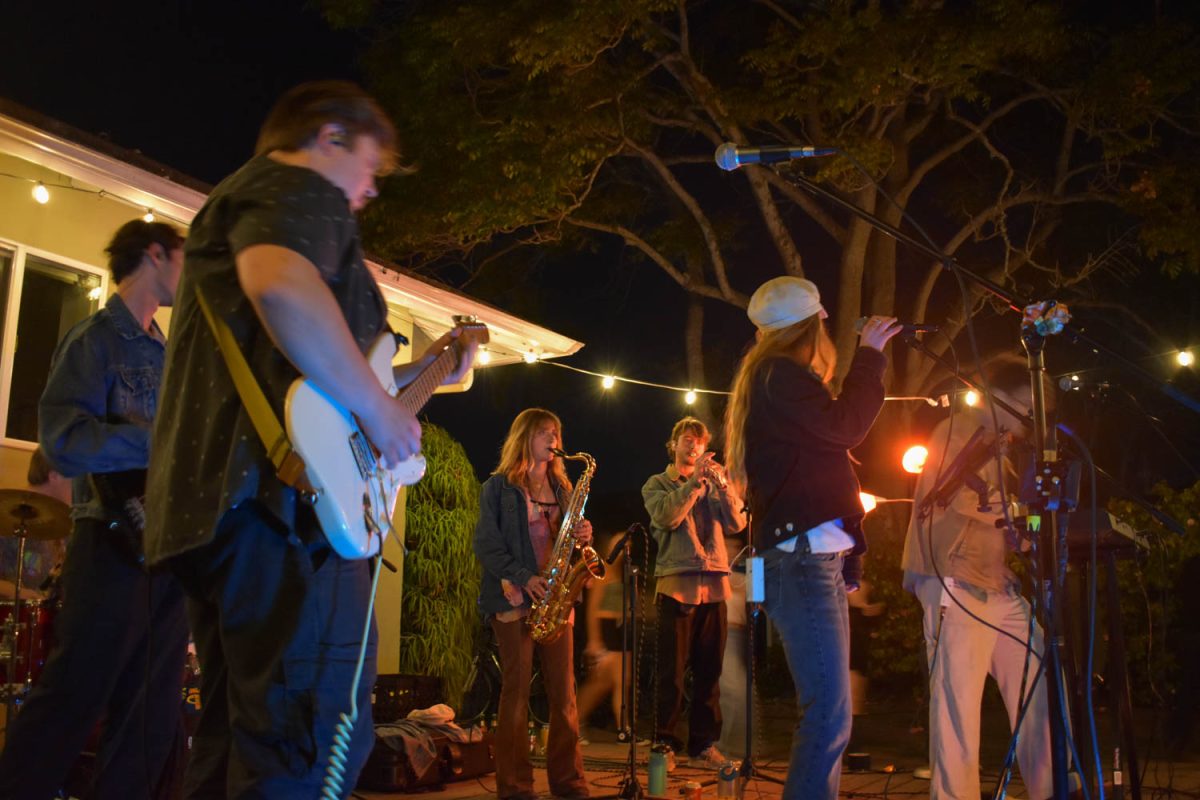The Extended Opportunity Program and Services (EOPS) has provided financial aid and basic needs to disadvantaged City College students since 1978.
As of Fall 2023, EOPS serves 683 members and expects to welcome more students in the future as the post-pandemic City College enrollment rises.
EOPS Director Ramon Borunda is in charge of managing both the budget and the EOPS faculty. Having only held the position for a few months, he describes being inspired by his staff.
“I am a macro-level manager of being able to support them, but they are the ones that create the magic that happens within this office,” Borunda said. “They are the ones that change the lives of our students.”
A visitor of the EOPS center can expect to be greeted by administrators at the front desk and student program advisors, both of whom direct students to other sectors of the program. Staff members include a financial aid advisor, mental health counselor, tutors, academic counselors, and student peer mentors.
The organization is also home to many services for members that extend beyond academic assistance. EOPS differs from other City College resources in their specialization of providing for scholars who may be economically disadvantaged, first-generation, fosters, or single parents.
“Those populations require a different kind of attention,” Borunda said.
Apart from academic guidance, EOPS mainly focuses on the basic needs of its members. Most financial services are spent on granting books and covering childcare for single parent students. The program also provides meal plans, monthly gas cards, school supplies, and even student-specific items, such as chef or makeup kits for culinary or cosmetology classes.
“Being a foster student in a system without guidance is tough. Being a first-generation student is tough. Not having a home or sleeping in your car is tough,” Borunda said. “And even in spite of that, our students still want to come to school. I bow down to them.”

Their budget is state and federally funded, so Borunda works closely with the financial aid office to better understand how to divide funds based on the limits of financial aid.
“We try to cover all these bases of what it is to be a student,” Borunda said.
Multiple factors influence a student’s eligibility to apply for a yearly membership on the EOPS website. California residency, enrollment as a full-time City College student with 12 or more units, and qualification for the California Promise Grant are the main requirements. While there are no membership fees, students are expected to check-in with EOPS staff at least three times each semester.
Additionally, while students must maintain a 2.0 GPA or higher to stay in the program, counselors and tutors help students keep their grades up and prevent them dropping. According to Borunda, staff members know that a student who is struggling in school is likely juggling other external factors and therefore in need of extra support, such as tutoring or speaking with a mental health counselor.
“We try to have our students become as proactive as possible,” Borunda said.
In an effort to prepare members for success, the program actively works with other departments across campus, like the Transfer or Career Center. This allows partnerships and rapport between EOPS and other scholarly resources so that staff can easily refer students elsewhere if a member’s needs are outside of their expertise.
“It all comes down to our student experience,” Borunda said.
Having recently hosted an arts and crafts event in celebration of Día de los Muertos, EOPS is interested in planning future promotional activities and events. One of Borunda’s ideas is a fundraiser for houseless students.
An extension of the program is the EOPS Club, of which the program’s member requirements do not translate. This option is open to EOPS members or non-members who are interested in giving back to the program. Leadership positions, such as president or treasurer, are also available. The students in the club emphasize mentoring others through academic workshops, as well as building a community among not just EOPS members, but the student body in general.
Looking forward, the program hopes to further their impact on campus and bring awareness to the other City College students. Just one interaction with the EOPS staff, says Borunda, can make a difference in a student’s City College experience. He encourages everyone to recognize disadvantaged students more in order to help them feel seen.
“It means a lot to them to have that acknowledgement of their presence, because they come from areas, spaces, and life experiences where they’re invisible,” Borunda said.




![Milton Alejandro Lopez Plascencia holds a flag showcasing the United States and Mexico on Feb. 7 in Santa Barbara, Calif. “It’s heartbreaking to see what is happening all across the country,” Lopez Plascencia said. “I [want] my voice to be heard by the community.”](https://www.thechannels.org/wp-content/uploads/2025/05/MGSImmigration-1-1200x800.jpg)


![The new Dean of Social Science, Fine Arts, Humanities and English, Eric Hoffman beams on May 2 in Santa Barbara, Calif. "My major professor in college [inspired] me," Hoffman said. "You can really have a positive impact on people's lives in education."](https://www.thechannels.org/wp-content/uploads/2025/05/MGSHoffman-2-1200x800.jpg)







